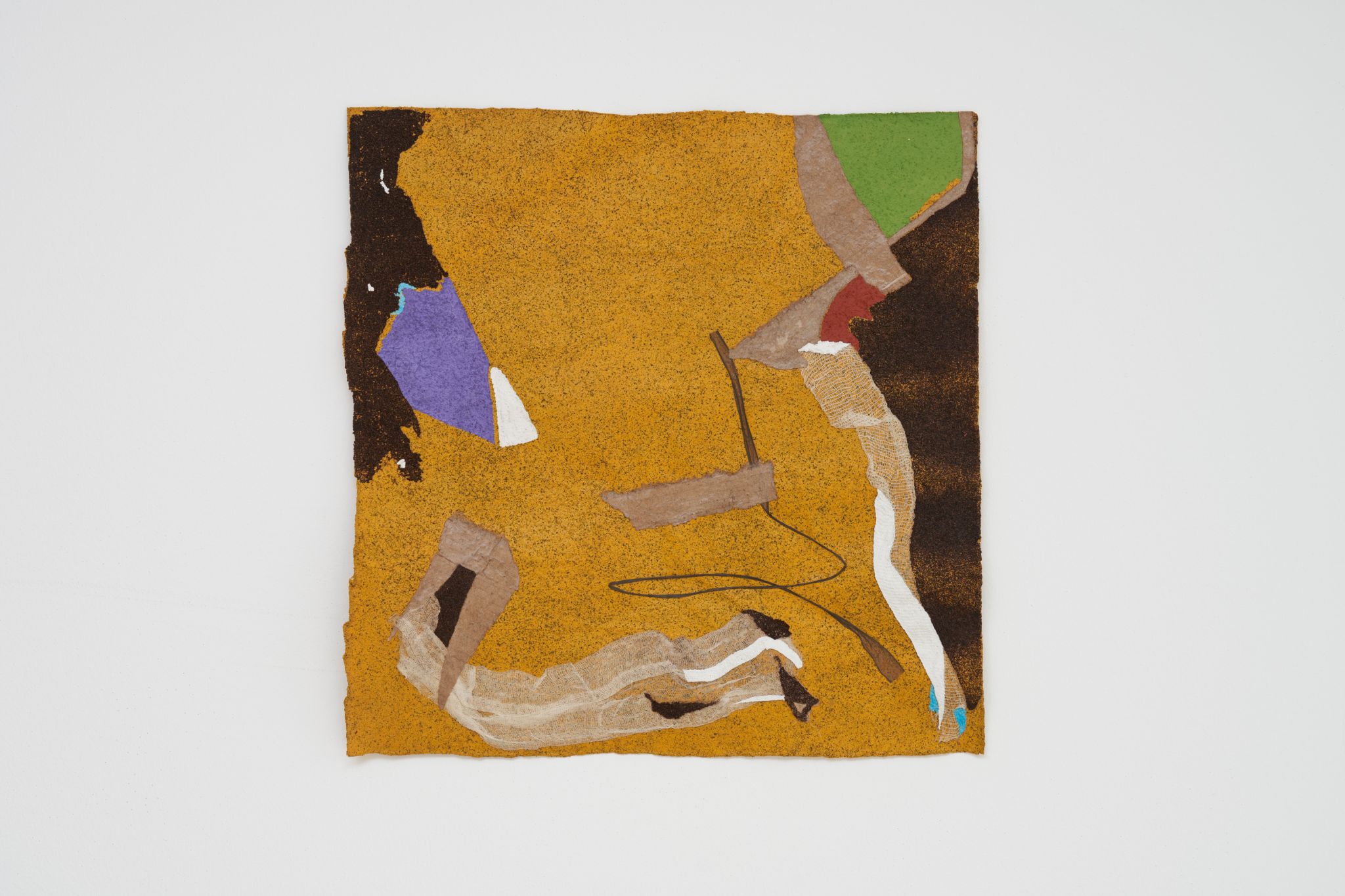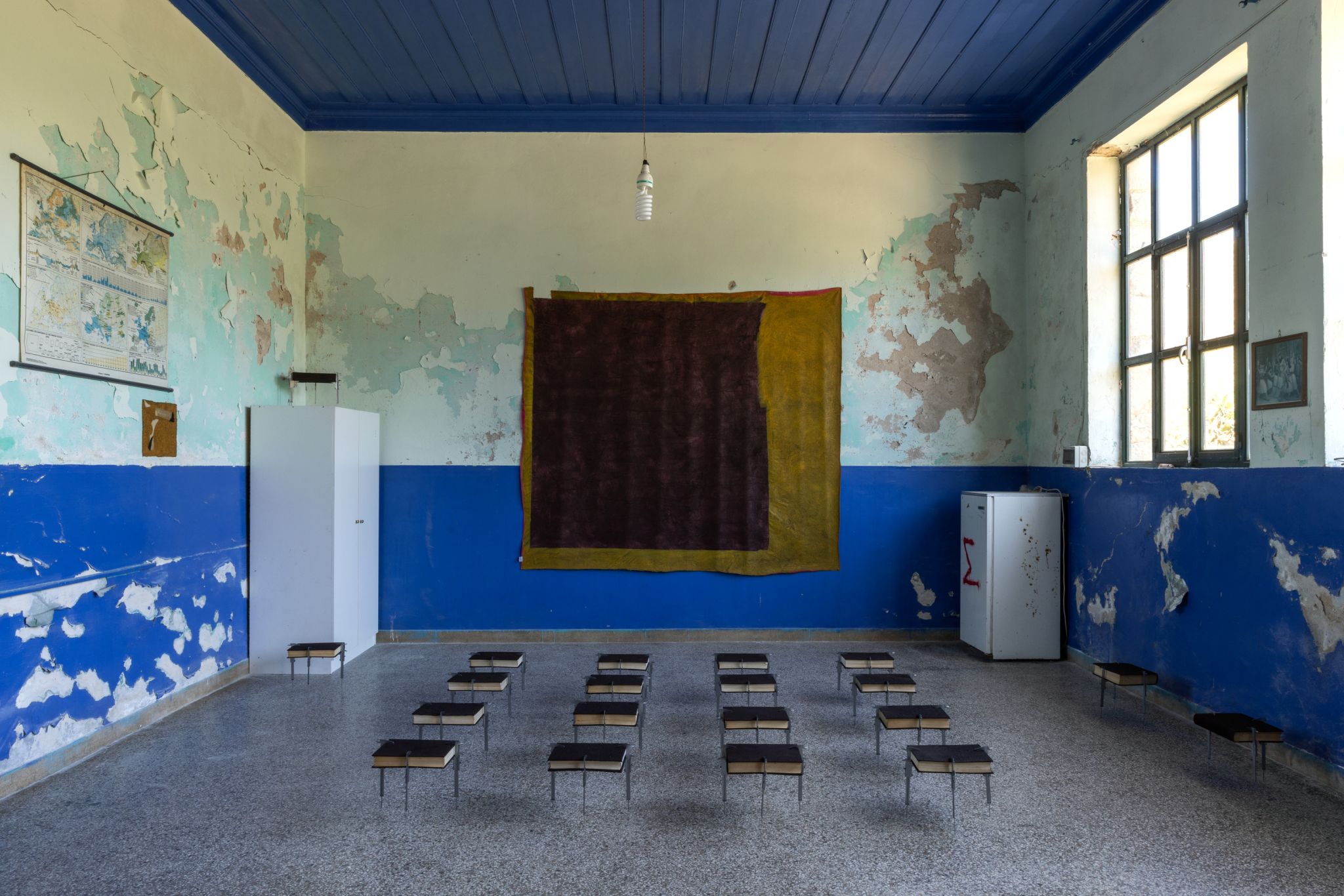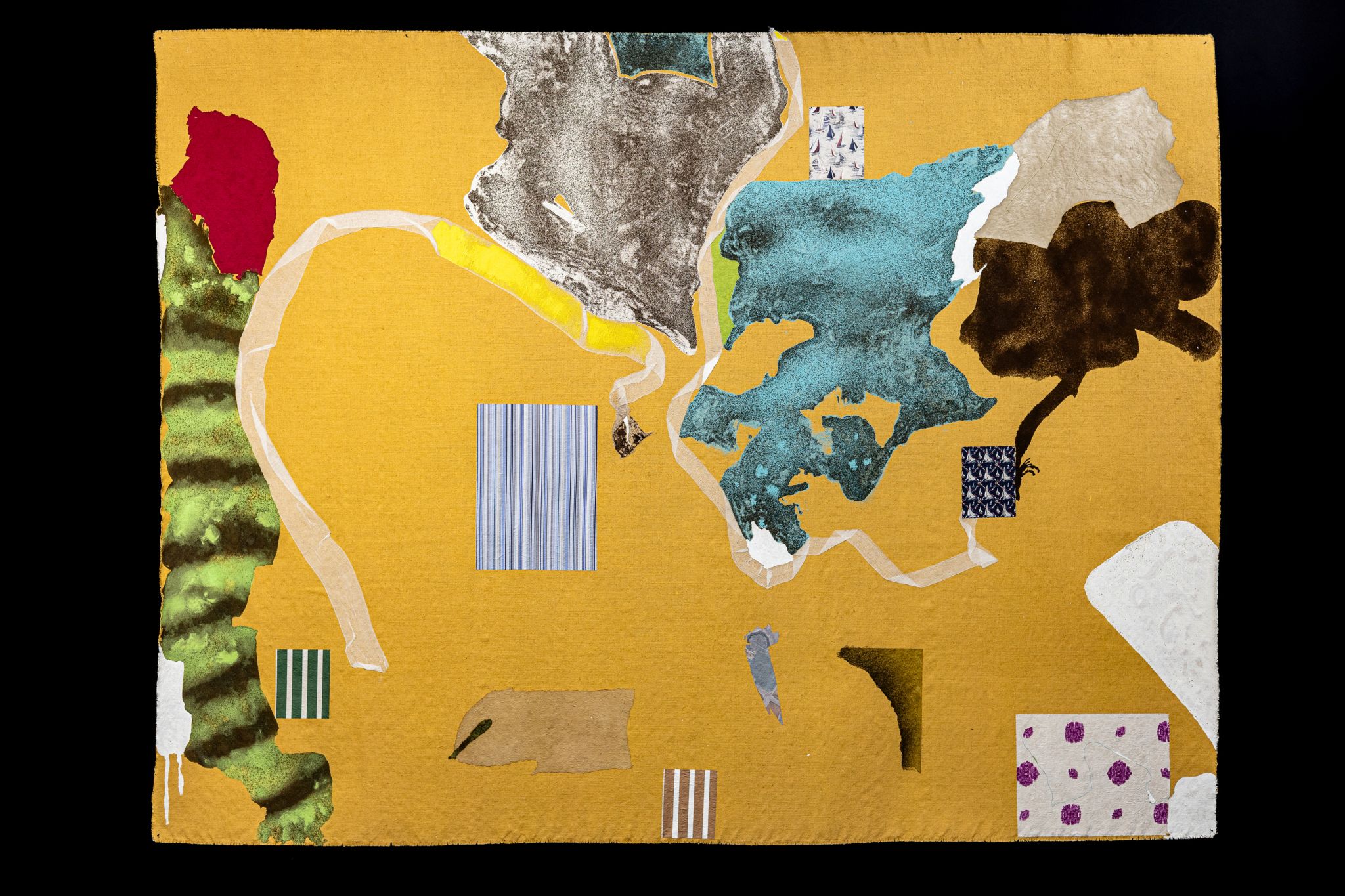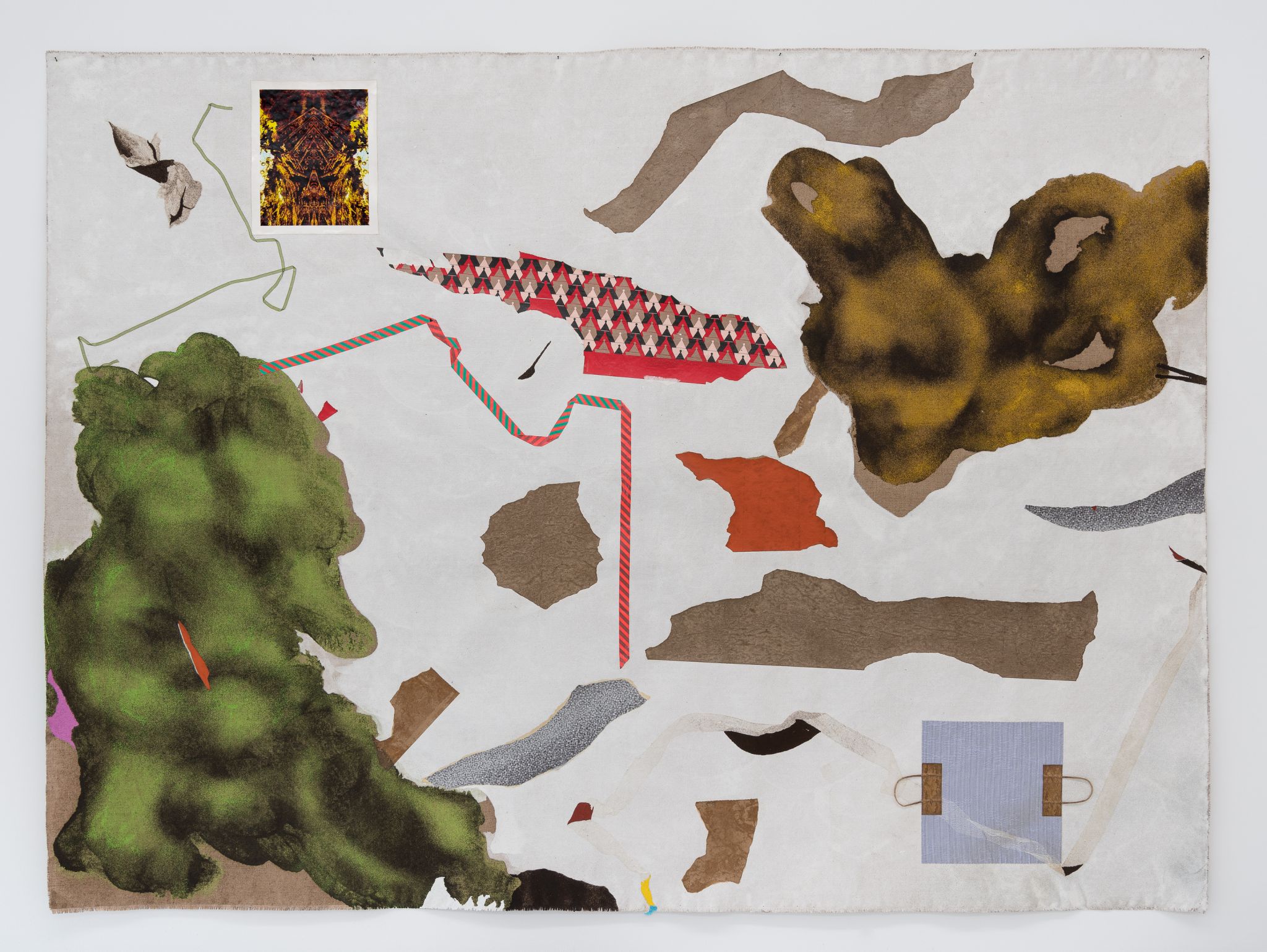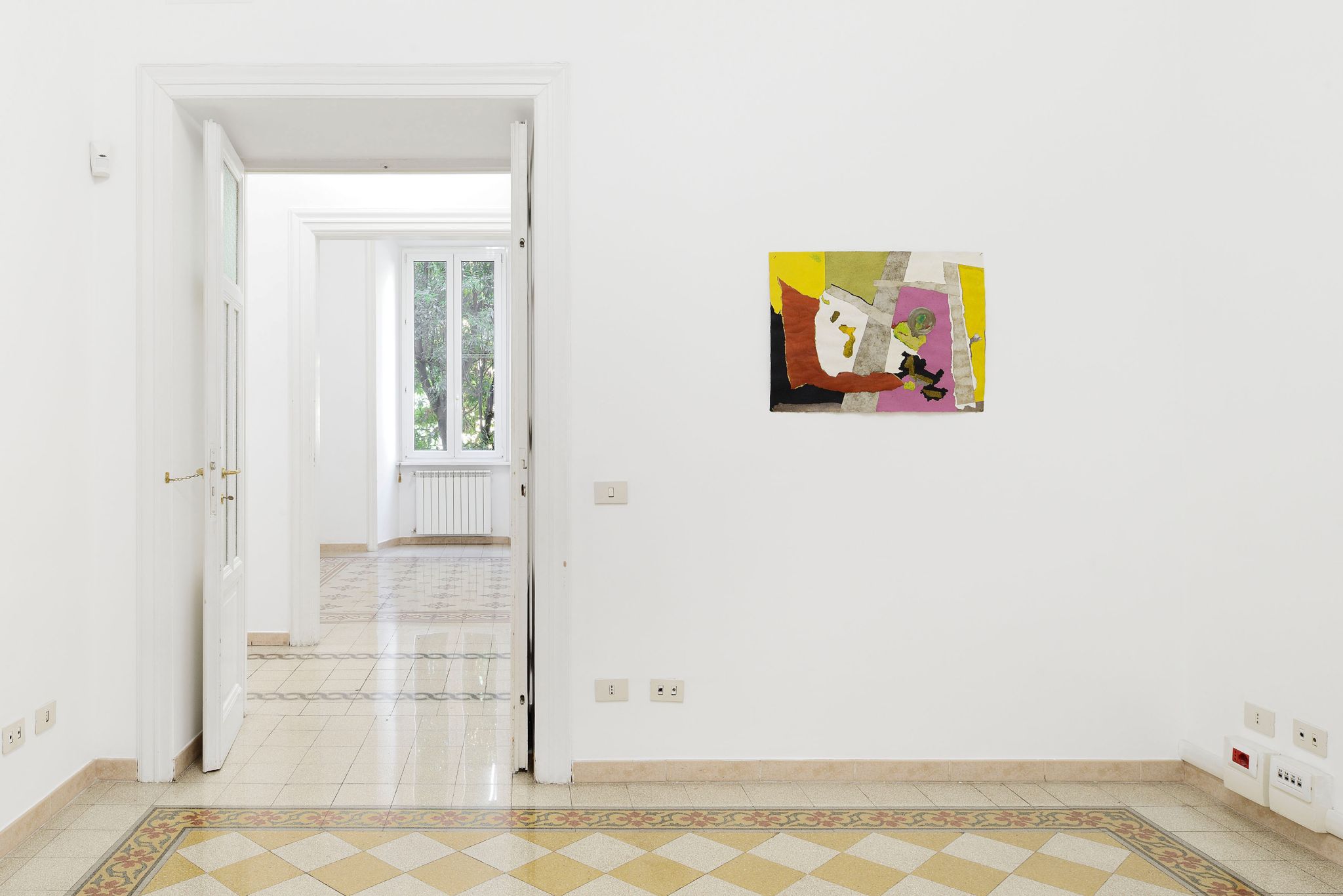Wednesday – Friday 12 – 6 pm
Saturday 12 – 4 pm and by appointment
Francis Offman’s work reflects the ecology of the materials used, weaving personal memories and geohistorical narratives. His body of work intertwines traces while mapping new grounds. Sourcing materials from daily interactions and exchanges, each is intricately linked to its unique history. Whether it’s the plaster of Bologna anchoring his creations in his city of residence or the coffee, a reference to Rwanda – his country of origin, which, before reaching him, passes through dozens of different hands, forming a constellation of intimate connections and threads. Francis Offman’s art balances a culture of remembrance on personal, collective, and material-based levels.
Francis Offman (b. 1987 in Butare, Rwanda) lives and works in Bologna. Recent shows include: Economics of Painting, Mead Gallery, Warwick Arts Centre, United Kingdom (2024), Notes from the Heart, La Società delle Api, Monaco (2024), Italian Painting Today, Triennale Milano, Italy (2023), uMoya: The Sacred Return of Lost Things, Tate Liverpool, Liverpool Biennial, United Kingdom (2023), La Biblioteca del Mondo, Fondazione Memmo, Italy (2023), Espressioni. L’Epilogo, Castello di Rivoli Museo dell’Arte Contemporanea, Italy (2022), The 8th Biennial of Painting: The ‘t’ is Silent, Museum Dhondt-Dhaenens, Belgium (2022), P420, Italy (2021), Herald St, United Kingdom (2021).
-
Francis Offman’s work reflects the ecology of the materials used, weaving personal memories and geohistorical narratives. His body of work intertwines traces while mapping new grounds. Sourcing materials from daily interactions and exchanges, each is intricately linked to its unique history. Whether it’s the plaster of Bologna anchoring his creations in his city of residence or the coffee, a reference to Rwanda – his country of origin, which, before reaching him, passes through dozens of different hands, forming a constellation of intimate connections and threads. Francis Offman’s art balances a culture of remembrance on personal, collective, and material-based levels.
read more
